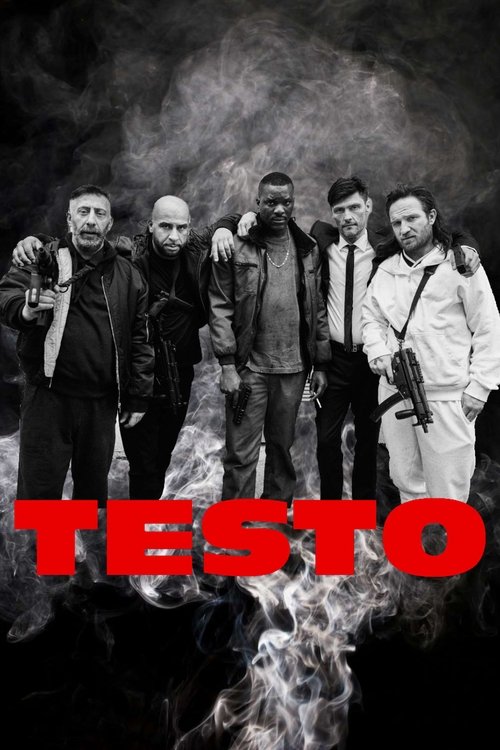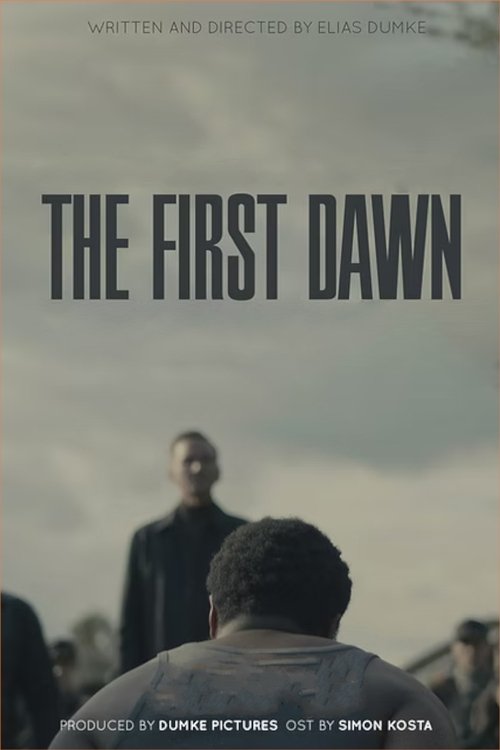
Ask Your Own Question
What is the plot?
The episode begins with a tense atmosphere as the Roman forces, led by General Varus, prepare for a decisive confrontation with the Germanic tribes. The camera pans over the Roman camp, showcasing soldiers sharpening their weapons and strategizing. Varus is shown to be confident, believing that the might of Rome will crush the tribes. Meanwhile, the Germanic tribes, led by Arminius, are seen gathering their forces, discussing their plans to ambush the Romans.
Arminius is deeply conflicted as he stands between his loyalty to the Romans, who raised him, and his duty to his people. He meets with his fellow tribesmen, including Thusnelda and Folkwin, who are eager for battle. Thusnelda expresses her desire to fight for their freedom, while Folkwin is more cautious, urging them to consider the risks involved. Arminius reassures them, promising that they will have the element of surprise on their side.
As night falls, the Germanic warriors stealthily move through the forest, preparing for their ambush. The tension builds as they position themselves along the path the Romans will take. The camera captures their anxious expressions, highlighting their determination and fear. Arminius takes a moment to reflect, torn between his past and his present, before signaling the others to get ready.
The next morning, the Roman legions march through the forest, unaware of the impending danger. The sound of their armor clanking and the rhythmic beat of their march create a sense of inevitability. Suddenly, the Germanic warriors spring into action, launching a surprise attack. Arminius leads the charge, and chaos ensues as arrows rain down on the Romans. The scene is filled with visceral combat, showcasing the brutality of the battle as both sides clash.
Arminius fights fiercely, his internal struggle evident as he battles against his former comrades. He witnesses the carnage around him, feeling the weight of his choices. Thusnelda fights alongside him, displaying her fierce spirit and determination. The camera captures the intensity of their movements, the bloodshed, and the cries of the wounded.
As the battle rages on, Varus realizes they are outmatched and attempts to regroup his forces. He shouts orders, trying to maintain control, but the chaos is overwhelming. The Romans begin to falter under the relentless assault of the Germanic tribes. In a moment of desperation, Varus orders a retreat, but it quickly turns into a rout as panic spreads among his men.
In the midst of the chaos, Arminius confronts Varus. Their eyes meet, and a moment of recognition passes between them. Arminius hesitates, grappling with his emotions, but ultimately pushes forward, determined to fight for his people. Varus, realizing the battle is lost, fights back fiercely, but the tide has turned against him.
The battle concludes with the Germanic tribes emerging victorious, but the victory is bittersweet. The camera lingers on the aftermath, showing the devastation left in the wake of the conflict. Arminius stands amidst the fallen, grappling with the consequences of his actions. Thusnelda approaches him, and they share a moment of understanding, both aware that their lives have irrevocably changed.
The episode ends with a sense of foreboding as the Germanic tribes celebrate their victory, but the looming threat of Roman retaliation hangs heavy in the air. Arminius looks out into the distance, contemplating the future and the challenges that lie ahead for his people.
What is the ending?
In the ending of "On the Edge," the episode culminates in a tense confrontation between the Germanic tribes and the Roman forces. Arminius faces a critical choice that will determine the fate of his people. The episode concludes with a significant battle, showcasing the struggle for freedom and the deepening conflict between the Romans and the Germanic tribes.
As the episode unfolds, we find ourselves in the aftermath of the previous events, where tensions are high. The Germanic tribes are preparing for an impending confrontation with the Romans, who are encroaching on their territory. Arminius, torn between his loyalty to his people and his past as a Roman soldier, grapples with his identity and the weight of his decisions.
Scene by scene, the narrative begins with Arminius meeting with his fellow tribesmen, who are anxious and fearful about the Roman threat. The atmosphere is thick with uncertainty, and Arminius feels the pressure of leadership weighing heavily on him. He knows that the Romans, led by the ambitious General Varus, are not just a military force but a symbol of oppression that his people must resist.
As the day of battle approaches, we see the tribesmen rallying together, their spirits ignited by the prospect of fighting for their freedom. Arminius, however, is conflicted. He recalls his time in Rome, the friendships he forged, and the loyalty he once felt towards the empire. This internal struggle is palpable, as he stands on the edge of two worlds, feeling the pull of both his heritage and his past.
The battle begins with a fierce clash between the two forces. The Germanic warriors, fueled by their desire for independence, charge into the fray with a fierce determination. Arminius leads them, his heart pounding with a mix of fear and resolve. The sounds of clashing swords and the cries of warriors fill the air, creating a chaotic yet exhilarating atmosphere.
As the battle rages on, we witness the brutality of war. The camera captures the visceral nature of the conflict, with close-ups of warriors fighting valiantly, their faces etched with determination and fear. Arminius fights alongside his people, his movements a blend of grace and ferocity, embodying the spirit of the tribes.
In a pivotal moment, Arminius confronts General Varus. Their eyes lock, and in that instant, the weight of their shared history hangs between them. Arminius's internal conflict reaches a boiling point as he realizes that he must fully embrace his role as a leader of the Germanic tribes. He fights with everything he has, driven by the desire to protect his people and secure their future.
The battle reaches its climax as the Germanic forces gain the upper hand. The Romans, caught off guard by the ferocity of the tribes, begin to falter. Arminius's leadership shines through as he rallies his warriors, urging them to push forward. The tide of the battle turns, and the Germanic tribes emerge victorious, a moment of triumph that resonates deeply within them.
As the dust settles, the aftermath of the battle reveals the cost of their victory. The camera pans over the battlefield, showcasing the fallen warriors on both sides. Arminius stands amidst the chaos, a mix of relief and sorrow washing over him. He has chosen his path, but the weight of loss hangs heavy in the air.
In the final moments of the episode, we see Arminius surrounded by his fellow tribesmen, their faces reflecting a mixture of joy and grief. They have fought for their freedom, but the scars of battle will linger. Arminius, now fully committed to his people, understands that this victory is just the beginning of a long struggle against the Roman Empire.
The episode concludes with a sense of hope intertwined with the harsh reality of their fight for survival. Arminius has embraced his identity as a leader, but the road ahead is fraught with challenges. The fate of the Germanic tribes hangs in the balance, setting the stage for the ongoing conflict that will define their future.
Is there a post-credit scene?
In the episode "On the Edge" of Barbarians, there is no post-credit scene. The episode concludes without any additional content after the credits roll. The focus remains on the intense narrative and character developments throughout the episode, leaving viewers with the weight of the events that have transpired rather than a teaser or additional scene.
What significant event occurs between Arminius and his Roman comrades in this episode?
In this episode, Arminius grapples with his loyalty to the Romans and his heritage as a Cherusci. He experiences a pivotal moment when he is torn between his Roman comrades and his own people, leading to a deep internal conflict.
How does Thusnelda's character develop in this episode?
Thusnelda's character is further developed as she showcases her strength and determination. She takes on a more active role in rallying her people against the Romans, demonstrating her leadership qualities and commitment to her tribe.
What role does the Roman general Varus play in this episode?
General Varus is portrayed as a strategic yet ruthless leader, focused on expanding Roman control. His interactions with Arminius reveal his expectations and the pressure he places on Arminius to maintain loyalty, which adds tension to the narrative.
How does the episode depict the relationship between Arminius and his father?
The relationship between Arminius and his father is strained, highlighting the generational conflict. Arminius's father represents traditional values and loyalty to the Cherusci, while Arminius is caught between his Roman upbringing and his heritage, leading to emotional confrontations.
What is the significance of the battle preparations shown in this episode?
The battle preparations serve as a crucial turning point in the episode, showcasing the unity among the Germanic tribes as they prepare to confront the Roman forces. This builds tension and anticipation for the impending conflict, emphasizing the stakes involved for both sides.
Is this family friendly?
"Barbarians," season 1, episode 3 titled "On the Edge," contains several elements that may not be suitable for children or sensitive viewers. Here are some potentially objectionable aspects:
- Violence: The episode features scenes of battle and combat, including bloodshed and injuries, which may be graphic and intense.
- Death: Characters face mortality, and there are moments that depict the aftermath of violence, including the emotional impact of loss.
- Emotional Turmoil: Characters experience significant emotional distress, betrayal, and conflict, which may be heavy for younger audiences to process.
- Themes of Betrayal and Loyalty: The narrative explores complex themes of trust and betrayal among characters, which could be unsettling for some viewers.
These elements contribute to a mature tone throughout the episode, making it less suitable for a family-friendly viewing experience.




































